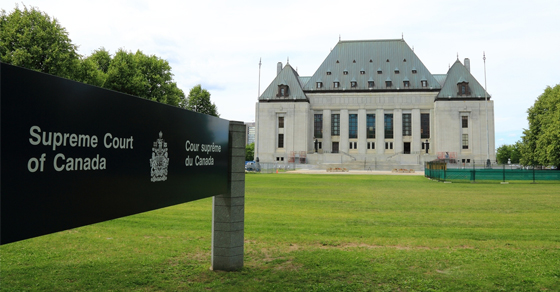The SCC Tells The Truth To Former PM Harper

Former Prime Minister Steven Harper used policy to win votes. He did so with foreign policy, and with the justice system, among others. He enacted “tough-on-crime” policies including cutting back on credit for time served in pretrial detention, and he implemented minimum sentences for many crimes, such as drugs and sexual offences against children.
Contrary to what the Harper government wanted people to believe, sentences for such crimes were not low, and courts were not being lenient. This was not a problem that needed to be fixed, but it did win votes and support from constituencies that vaguely perceived that crime was rampant, that criminals were being coddled, and that judges were soft on crime.
It is a fundamental principle of our criminal justice system that sentencing is tailor-made to the particular circumstances of the crime and the particular offender. A trained and experienced judge, who is apprised of those details, is in the best position to craft a sentence that is appropriate not only to the offender, but to the community and the victims as well. Politicians in Ottawa, who are seeking to win easy votes, and the bureaucrats who seek to please their political masters, are not going to ever be able or willing to determine the appropriate sentence for a particular case.
That problem did not stop the Harper government from passing law after law designed to “toughen up” the criminal justice system. They did so even though these laws were flawed and violated basic constitutional principles, such as the right to be free from cruel and unusual punishment and arbitrariness. By pushing ahead (often by burying the bill in omnibus legislation so that it could not easily be challenged), the Harper government sought to win on two fronts: by pandering to its base, and by baiting the courts to find the legislation unconstitutional. When the laws were struck down, the Harper government could then claim that “elite” and overpaid judges were defying the will of the electorate, and siding with the criminals. That rhetoric would win the party more votes and more support.
The Harper government took a step too far, when they challenged the integrity of the Chief Justice of the Supreme Court, and this attack on a cherished Canadian institution helped to contribute to the Harper government’s downfall in the last election.
And now that Harper is gone, the Supreme Court is cleaning up the mess that his government left behind. One by one, the constitutionality of the Tory crime bills is being examined and found wanting. The Constitution of Canada, with its Charter of Rights and Freedoms, is the supreme law of Canada, and any law inconsistent with its principles is illegal. Many of the poorly drafted and hastily enacted “tough on crime” laws, such as those contained in the Truth In Sentencing Act, have been struck down. The most recent of these involve provisions that are overly punitive in nature: removing credit for pre-trial custody from offenders who have a criminal record; and imposing “one-size-fits-all” sentences such as those for drugs and guns. No one is saying that these crimes should not attract tough sentences; but the Supreme Court is reminding Canadians, and the politicians and bureaucrats who create laws, that those laws have to be consistent with the fundamental principles of justice.
Current Prime Minister Justin Trudeau has tasked his Justice Minister, Jody Wilson-Raybould, with reviewing all of the Harper crime legislation. Hopefully they exercise more diligence and respect for fundamental principles and Canadian values than their predecessors.

